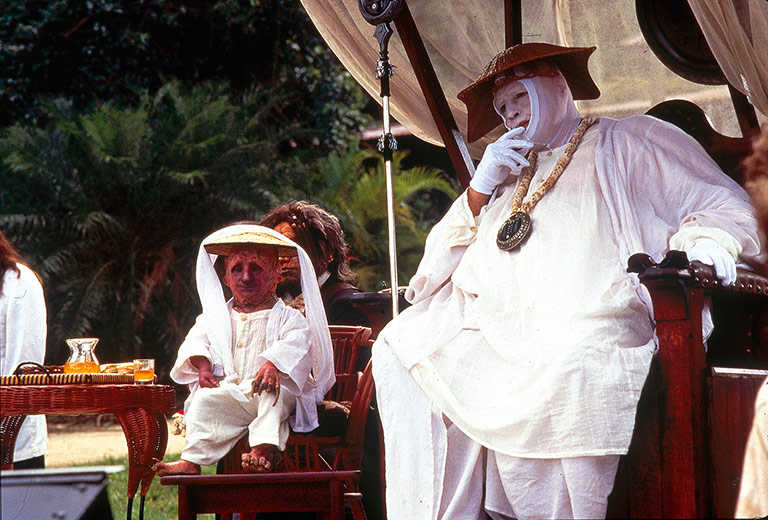Links:
The Island of Dr. Moreau (Vudu, free with ads, or other options)
Lost Soul: The Doomed Journey of Richard Stanley's “Island of Dr. Moreau”
(Amazon Prime)
Biohackers in Australia are developing a take-home COVID testing kit. If it works, it would be extremely valuable to healthcare providers and those tracking the spread of the illness. However, like with basically everything else that biohackers do, there are very few medical authorities willing to endorse these homegrown tests, as no regulations apply to people testing things on themselves in private labs. But if you have some training in molecular biology and organic chemistry, find the red tape surrounding human testing frustrating (albeit necessary to prevent atrocities), and are willing to donate your body to the cause of scientific progress, you might be inclined to join the ranks of those fearless pioneers implanting magnets into their fingertips and what have you.
But before biohackers there were mad scientists, and apart from the Swiss chemist Victor Frankenstein the 19th century’s most iconic reclusive researcher may be H.G. Wells’s 1896 creation Doctor Moreau. He was brought to the screen three times: by Charles Laughton in 1932, then Burt Lancaster in 1977, and finally an aging Marlon Brando upon the centennial of Wells’s novel in 1996. While the 1977 American International Pictures version is a trip and definitely worth watching (if only to see Richard Baseheart in poor man’s Planet of the Apes makeup), the 1996 Island of Dr. Moreau is a beguilingly complex text, both in terms of its layers of irony and metanarrative distancing and its chaotic production history.
David Thewlis (of Mike Leigh’s Naked fame) plays a UN envoy on his way to Jakarta when he crashes into the Pacific and is picked up by Val Kilmer on an Indonesian fishing vessel. Kilmer conducts him to a remote island with a neo-colonial lab-plantation run by the eccentric Doctor Moreau (Brando). As the nefarious nature of Moreau’s genetic experiments and the intensity of the conflicts between the island’s tiered mutant populations dawn on Thewlis he waxes increasingly panicked about his escape prospects, while also falling in love with the beautiful human-panther hybrid Fairuza Balk.
The production was legendarily troubled. South African novice filmmaker Richard Stanley had conceived the project and somehow gotten producer Edward R. Pressman involved, who managed to secure the notoriously unpredictable Brando (who, in the middle of production, learned that his daughter had committed suicide and withdrew to his own real-life private island in French Polynesia). Kilmer, another erratic diva, had originally been cast as the star, but when he demanded his on-set time be cut by half, Stanley demoted him to a supporting role. The studio finally fired the volatile Stanley and hired John Frankenheimer—of Manchurian Candidate (1962) and Seconds (1966) fame—who, against all odds, judoed the project into a screenable film.
The film engages with Wells’s problematic colonial themes through self-conscious hyperbole (Moreau makes his dreadlocked and disfigured servants wear linen suits and call him ‘master’ while he by turns whips them and teaches them to recite Yeats) and distances the spectator through bizarre metafictional methods, like making Brando’s character a decadent version of Colonel Kurtz and having Kilmer do a mocking Brando-as-Godfather impression. The film’s tone is further complicated by the inexplicable presence of Einstürzende Neubauten on the soundtrack and the Thewlis character’s incongruously Victorian moral attitudes. To say that The Island of Dr. Moreau is an overlooked treasure would be a disservice to overlooked treasures, but it is fascinating in the same way that Moreau’s mutants are fascinating to the naive diplomat who lands among them: as a freak product of men’s hubris.



